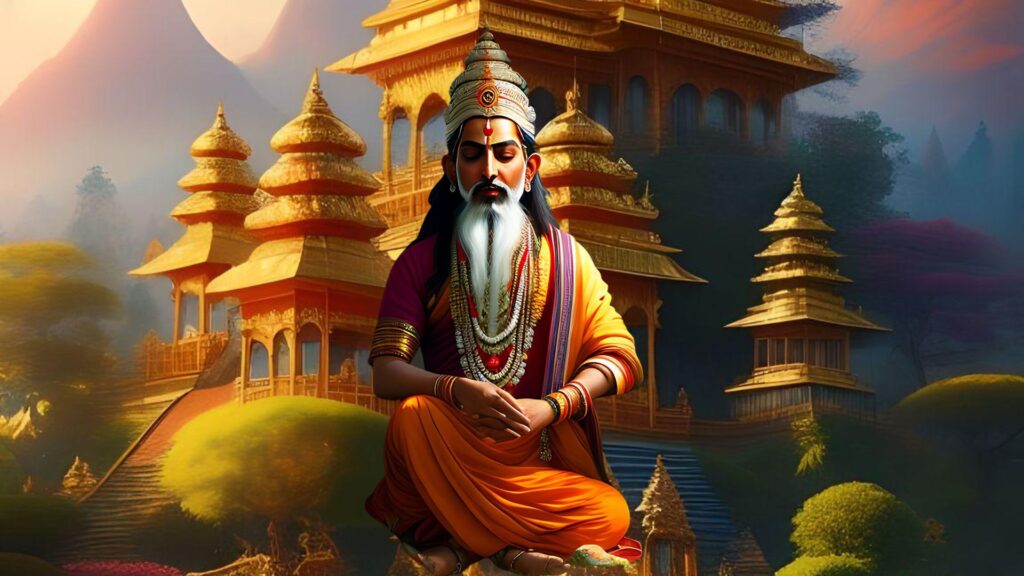Swami Vivekananda: A Visionary Leader and Spiritual Icon
Introduction
Born Narendranath Dutta in 1863, Swami Vivekananda was an esteemed Indian monastic and philosophical figure who significantly contributed to the dissemination of Hinduism across the globe. In his capacity as the primary disciple of the enigmatic Ramakrishna, Swami Vivekananda emerged as a figure of considerable allure and impact, promoting principles of spiritual enlightenment, religious tolerance, and universal acceptance. This article aims to examine the life, teachings, and influence of Swami Vivekananda, with a particular focus on his noteworthy contributions to the spiritual realm and his lasting heritage.
Early Life and Spiritual Journey
Narendranath Dutta, who was born into a middle-class Bengali family, demonstrated exceptional intellectual prowess and an early insatiable desire for knowledge. Driven by the intellectual climate of 19th-century Bengal and the religious convictions of his parents, Narendranath undertook a spiritual voyage in search of answers to the most fundamental inquiries of existence.
Narendranath encountered the great mystic Sri Ramakrishna during his formative years; he would later regard him as his spiritual mentor and guide. Under the guidance of Ramakrishna, Narendranath embarked on a profound voyage of self-exploration, delving into an assortment of philosophical traditions and spiritual practices.
Meeting with Swami Vivekananda
During this time, Narendranath was bestowed with the spiritual appellation Swami Vivekananda, which served as a representation of his enlightened state of mind and steadfast dedication to the principles of selflessness and altruism. His profound devotion to Ramakrishna, Swami Vivekananda’s guru, profoundly shaped his worldview and mission to disseminate the teachings of Vedanta and Hindu philosophy.
The 1893 World’s Parliament of Religions
A pivotal moment in the life of Swami Vivekananda occurred in 1893 when he was invited to address the World’s Parliament of Religions in Chicago. This momentous occasion granted him an international stage from which he could promote Hinduism as a dynamic and all-encompassing faith, dispelling prevalent misunderstandings and encouraging interfaith discourse.
Swami Vivekananda engrossed the audience during his enthralling address at the Parliament with his eloquence, profound insights, and wisdom. He extolled the tenets of Vedanta with fervor, placing particular emphasis on the all-encompassing nature of religion and the criticality of acceptance, tolerance, and spiritual cohesion.
Teachings and Philosophy
Swami Vivekananda’s doctrines comprised an extensive array of subjects, such as personal development, social reform, Vedanta, and spirituality. The individual’s philosophical tenets prioritized the intrinsic divinity of the human soul and the possibility of attaining self-actualization via methodical spiritual endeavors.
Vedanta: The Essence of Hindu Philosophy
Swami Vivekananda’s teachings are founded upon Vedanta, an ageless philosophical system that finds its origins in the Upanishads. Brahman, the ultimate reality, is said to be present in all beings, according to Vedanta. The pursuit of understanding this divine essence through self-reflection and meditation is the purpose of existence.
Swami Vivekananda emphasized the criticality of perceiving Vedanta not solely as a theoretical endeavor, but rather as a pragmatic manual for attaining a purposeful and gratifying existence. He advocated for the profound examination of one’s own consciousness, the investigation of fundamental convictions, and the pursuit of firsthand encounters with the divine.
Universal Acceptance and Religious Tolerance
A perennial tenet of Swami Vivekananda is the insistence on religious tolerance and universal acceptance. His conviction was that every religion ultimately points to the same truth, and that the variety of religious trajectories ought to be commended instead of denounced.
“I fervently hope that the bell that tolled this morning will be the fatal knell of all fanaticism, all persecutions by sword or pen, and all uncharitable feelings between persons striving for the same goal,” Swami Vivekananda said in his renowned address to the World’s Parliament of Religions.
Service to Humanity
An essential component of spiritual practice, Swami Vivekananda emphasized the significance of altruistic service to humanity. True spirituality, in his opinion, ought to motivate people to try to improve the circumstances of others and contribute to the betterment of society; it should not be separated from social responsibility.
The principles of education, healthcare, humanitarian aid, and altruistic service, which formed the basis of the Ramakrishna Mission, a global philanthropic organization, were established in accordance with the teachings of Swami Vivekananda.
Legacy and Impact
It is impossible to exaggerate Swami Vivekananda’s global influence. His concepts and teachings continue to motivate millions of individuals worldwide, surpassing barriers of culture and religion. His conviction regarding the significance of practical spirituality and the unity of all religions appeals to truth-seekers and individuals interested in spiritual matters from diverse backgrounds.
By means of his written works, public addresses, and one-on-one engagements, Swami Vivekananda profoundly influenced a revival of Hinduism and culture, which continues to influence contemporary perceptions of spirituality and philosophy. Established upon the tenets of love, tolerance, and self-actualization, his vision for a harmonious world continues to be as pertinent in the twenty-first century as it was during his lifetime.
Conclusion
Spiritual icon and visionary leader Swami Vivekananda devoted his life to the advancement of humanity, the pursuit of truth, and spiritual enlightenment. In their pursuit of meaning and purpose, his teachings on Vedanta, universal acceptance, and selfless service continue to motivate and direct individuals. Beyond the confines of his era, Swami Vivekananda has left an enduring legacy that surpasses geographical and cultural boundaries. May our endeavor to exemplify his teachings motivate each of us to adopt an attitude of tolerance, appreciate diversity, and aspire for the establishment of a more harmonious and empathetic global community.








